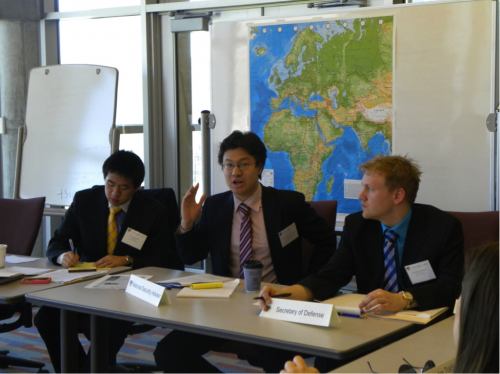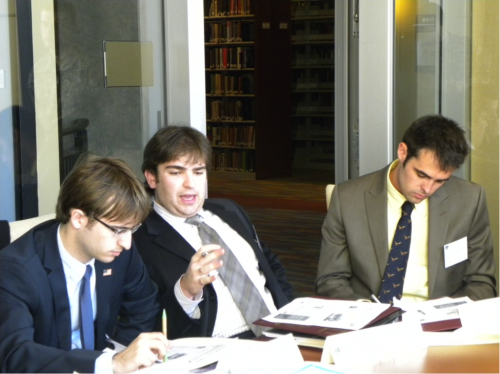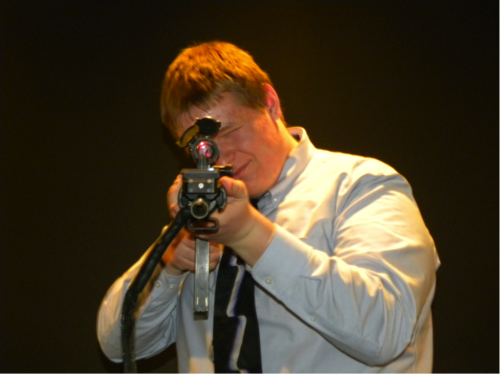The United States Military Academy at West Point is hosting its second conference, the West Point Security Conference (WPSC), this past weekend. Welcoming over twelve delegations from two continents, this tight-knit conference addresses the most critical National Security concerns for both the United States and for the global community.
Within this crisis, the delegates from seven different committees have been tasked to react to a common threat to global security. The committees, which include the National Security Council (NSC), National Economic Council (NEC), U.S. Central Command (CENTCOM), U.S. Special Operations Command (SOCOM), the Joint Inter-Agency Task Force (JIATF), the Israeli Embassy and the Arab League. Each one works both independently and together to administer pragmatic solutions to pressing concerns.
WPSC 2012 analyzes the dynamic relationship between key actors in the Middle East, including the political tension between Israel and Iran. In this simulation, which takes place in 2016, Iran has continued to develop nuclear capabilities, despite pressure from the international community. The mounting concern and action on behalf of Iran increased their tension with Israel. Threatened, Israel sought to take action against Iran’s suspected nuclear capabilities by presenting them with an ultimatum for the relinquishment of their program. As a result of Iran’s failure to comply, Israel bombed the Iranian city of Natanz, thus involving the United States politically. The simulation, run by an elite cast of minds in the tactical operations command (TOC) has presented the delegates with a series of mounting crises which they have each had to react to in their respective committees.
The President of the United States, Cadet Lieutenant Brett Schuck, is responsible for facilitating United States policy in regards to the matter. The delegates send up policy recommendations for action and he has ensured that that the U.S. is taking appropriate action.
Beyond the scope of the committee rooms, this conference offers more than just comprehensive debate; giving all delegates the opportunity to see military life first hand. All of the delegates had the opportunity to shoot M16, M4, and M240B in the West Point Simulation Center, the foremost virtual training center at West Point. This was many delegates’ first time firing any weapon and many did very well! They were given a formal brief and debrief, and were able to ask questions about real-world military training. This conference has sought to present a realistic scenario to the delegates while bridging civil-military relations, and it has been successful in both.





